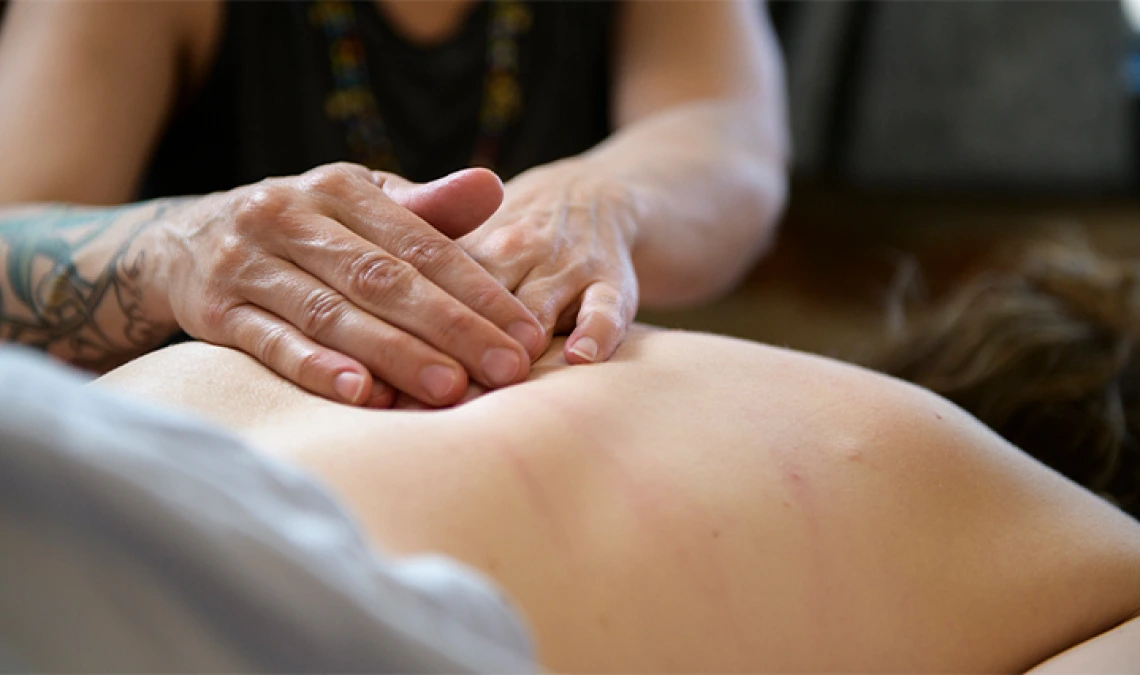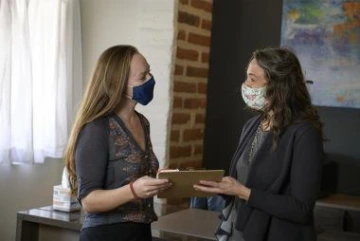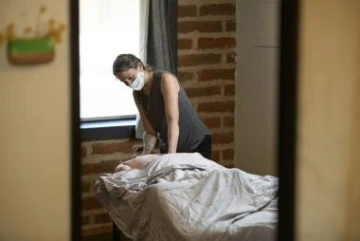Research Explores Masseuse Role in Reducing Cancer
New research moves from education about skin cancer risk to risk reduction.

Massage therapists are uniquely positioned to talk to clients about skin cancer: they often are able to spend more time with a client, interact with them more frequently and view more of a person’s skin surface area than a health care provider. This recognition led a University of Arizona College of Nursing researcher to explore ways to bring massage therapists (MTs) into a more active role in reducing skin cancer risk.
Lois J Loescher, PhD, RN, FAAN, and her team have explored the feasibility of partnering with MTs to reduce the most common form of cancer in the United States.
Taking the research a step further
12042020-skin_cancer_message_therapy_klh5238-inline.jpg

Massage therapists spend time with clients closely inspecting their skin, and with the new training program, they are prepared to discuss skin cancer prevention with sensitivity and knowledge.
Massage therapists spend time with clients closely inspecting their skin, and with the new training program, they are prepared to discuss skin cancer prevention with sensitivity and knowledge.
During a typical full body massage, MTs have a view of each anatomical area of a client’s body, providing an opportunity to see skin cancer risk factors such as sunburn, tanning lines, high mole counts or suspicious lesions. Additionally, according to a 2002 study in the Journal of the American Board of Family Medicine, clients typically are more likely to discuss health promotion with an MT, which offers greater opportunities for communication and encouragement of effective skin cancer risk reduction behaviors.

According to a 2002 study in the Journal of the American Board of Family Medicine, clients typically are more likely to discuss health promotion with a massage therapist than a doctor.
“Previous research that included MTs focused primarily on their interest in educating clients about skin cancer risk,” Dr. Loescher said. “We moved to the next step to actually prepare these important providers to have meaningful and helpful client-focused conversations on skin cancer risk reduction.”
12042020-skin_cancer_message_therapy_klh5198-inline.jpg
According to a 2002 study in the Journal of the American Board of Family Medicine, clients typically are more likely to discuss health promotion with a massage therapist than a doctor.
Some MTs receive education about skin cancer while completing licensing and certification training; however, there is no national standard for the amount of content about the topic that should be included in massage therapy curricula. To help fill this gap, Dr. Loescher, who is a member of the UArizona Cancer Center, worked with her team to develop an e-training module with two purposes: to inform MTs about skin cancer risk reduction and to train MTs to have positive, client-focused conversations about skin cancer risk reduction without compromising their scope of practice.
Simulation for training
Dr. Loescher’s team utilized the DecisionSim™ online platform for the e-training. The team developed five case simulations, each highlighting different components of a conversation in the context of a massage client visit. Each case incorporated four to seven decision points for the participant to apply knowledge.
To test the efficacy of the e-training, Dr. Loescher and her team recruited 80 MTs practicing in Arizona. The training proved successful, as participants significantly improved their skin cancer knowledge and level of comfort with delivering risk reduction information to their clients.
12042020-skin_cancer_message_therapy_klh5346-inline.jpg


A majority of massage therapists involved in the study found the simulations useful and worth including in the training of future masseuses.
A majority of massage therapists involved in the study found the simulations useful and worth including in the training of future masseuses.
A majority of MTs found the simulations useful and worth including in the training of future MTs. Dr. Loescher and her team concluded that adding decision-simulation technology to the e-training modules was useful not only to evaluate participant knowledge and skills, but also to assess e-training content and delivery for future improvement. This innovative, practical application of simulation technology may be useful in a wide variety of health promotion and disease prevention contexts across disciplines and populations of study.
Dr. Loescher’s team is planning to continue testing the e-training with a larger sample of massage therapists in Sun Belt states in the U.S.
Dr. Loescher’s team recently concluded a study funded by the Arizona Biomedical Research Centre, “Massage Therapists Skin Health Awareness, Referral and Education (MTsSHARE) to Reduce Skin Cancer Risk in Arizonans,” the results of which have been published in the Journal of Medical Internet Research (JMIR).
The story was originally published by the College of Nursing.



